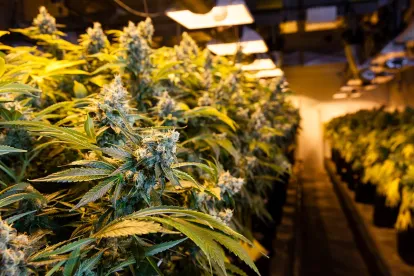On May 4, 2022, the Food and Drug Administration (FDA) issued warning letters to five companies it asserts are illegally marketing products labeled as containing delta-8 tetrahydrocannabinol (Delta-8 THC) in ways that violate the Federal Food, Drug, and Cosmetic Act (FDCA). Simultaneously, FDA issued a new consumer update “5 Things to Know about Delta-8 Tetrahydrocannabinol – Delta-8 THC.” The consumer update and warning letters are a continuation and expansion of FDA’s efforts to warn the public about products that are not approved under the FDCA and to rein in the rapidly expanding market of products containing hemp-derived cannabinoids. This set of warning letters marks the first time FDA has publicly taken enforcement action against products containing Delta-8 THC, and it will likely not be the last.
Delta-8 THC is a naturally occurring cannabinoid that is found in small traces in both hemp and cannabis. Delta-8 THC has psychoactive and intoxicating properties and is marketed as providing a less potent high than its more well-known and explicitly regulated cousin, delta-9-tetrahydrocannabinol (Delta-9 THC). Delta-8 THC is derived from the chemical conversion of hemp-derived cannabidiol and that extraction process has been the root of legal confusion. Although all hemp-derived cannabinoids, including hemp-derived Delta-8 THC, seem to fall within the definition of hemp under the Agriculture Improvement Act of 2018, the federal legality of Delta-8 THC is unclear.
In August 2020, the Drug Enforcement Administration (DEA) released an Interim Final Rule (IFR) in which the agency stated, in part, that “[a]ll synthetically derived tetracannabinols remain schedule I controlled substances.” Since then, industry has been engaged in a number of lawsuits challenging the IFR and its application to hemp-derived cannabinoids such as Delta-8 THC. Against this federal backdrop, a number of states have banned Delta-8 THC or issued guidance through their respective public health agencies prohibiting its introduction into foods, supplements, and cosmetics. Until this past week, FDA had publicly stayed out of the Delta-8 THC fray.
In the new consumer update, FDA cautioned consumers against using products containing Delta-8 THC, because: (1) it has not been evaluated or approved by the FDA for safe use in any context, (2) the FDA has received numerous reports from national and state poison control centers of adverse events associated with consuming Delta-8 THC products due to its more mild albeit still significantly psychoactive and intoxicating effects, and (3) manufacturers use a process called “synthetic conversion” to convert the naturally low amounts of Delta-8 THC found in hemp into higher quantities by using potentially unsafe chemical additives.
The FDA warning letters focus on deceptive marketing tactics employed by manufacturers of Delta-8 THC products. Because Delta-8 THC is derived from hemp, FDA asserts that manufacturers have deceived consumers by labeling products containing Delta-8 THC simply as “hemp products.” FDA asserts that such labeling is misleading because consumers associate hemp with being “non-psychoactive.” Further, FDA raised significant concerns regarding manufacturers who branded their Delta-8 THC products to appeal to young children. FDA also noted that it has seen an uptick in deceptive marketing tactics used by manufacturers acting as “snake oil salesmen” by making unsubstantiated therapeutic claims for both Delta-8 THC and CBD-related products. As we’ve previously written about here, these “over-the-line” claims often promise that products will diagnose, cure, mitigate, treat or prevent diseases without scientific research to validate those representations. These deceptive marketing tactics raise serious public health concerns because patients and consumers may decide to use these products instead of approved therapies to treat serious medical conditions.
In addition to violations for products containing Delta-8 THC, several of the FDA warning letters detail additional violations of the FDCA concerning the marketing of CBD additives to human and animal foods, and dietary supplement labeling. In the warning letters, FDA reiterated that both of these hemp-derived cannabinoids are considered unsafe, adulterated food additives within the meaning of the FDCA, and FDA is unaware of any basis to conclude that the substances are generally recognized as safe (GRAS).
With this this recent batch of warning letters, FDA reinforces the federal and state trend of placing greater restrictions and regulations on hemp-derived cannabinoids. Industry should take note and consult with qualified legal counsel on how to navigate the increasingly thorny regulatory landscape for hemp-derived cannabinoids products.




 />i
/>i

